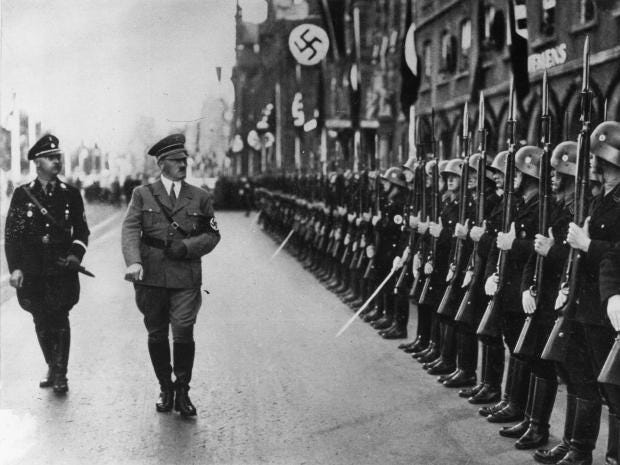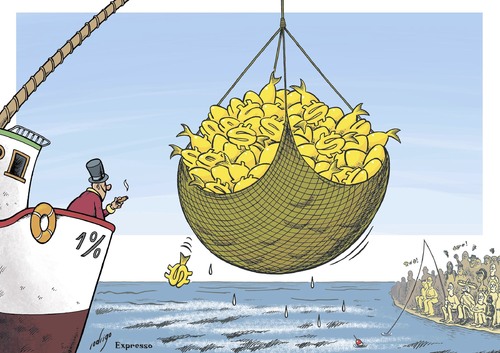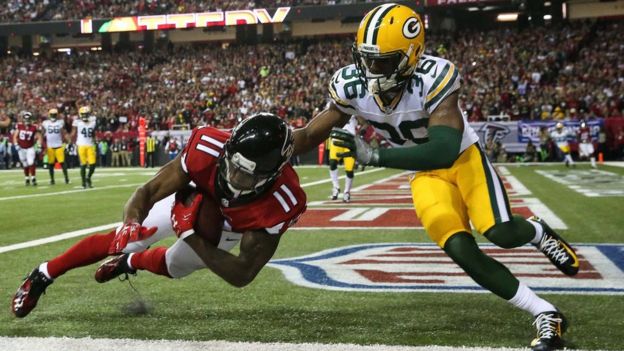Why are we racist?
This is a question for all of us. When I first learned about racism, I heard it as an identifier. That boy was called a racist by another boy. Now when I had heard the word, I was confused. Did you just call him races? Someone explained it to me. “A racist is a person that makes fun of other people because they are different.” Well, I thought that wasn’t very nice. Racists are bad then. My mom told me not to be mean. Then again, maybe things were just easy for me and I had no need to be mean. I was a spoiled child and my mother went to great measures to keep me pure and cherubic. In fact, I rather christianized myself because I took pride in being a good kid. But this isn’t about me. Let’s talk about the racists. So back to the kid that called the other kid a racist. Looking back to that time, I realized something peculiar. Strangely, I didn’t learn about the word racism until I had heard the word racist being used on numerous occasions. Sure, kids were fond of labelling other kids with new, unfamiliar words. But why didn’t the word racist come before the word racism? There can be several explanations. Maybe this occurred because it was easier for kids (5th graders) to see the embodiment of a supposed racist (that was more likely an unfiltered kid), and to just identify this person as being that. Or maybe the word racism was too conceptual for young kids, right? They don’t have time to deal with ideas and the intangibles, they need to see an actual racist. Or maybe, what I just said is a terrible way of stating how it is for all kids based on my experience. Well, that’s true. Not all kids are going to hear the word racist before racism. And how does someone remember? Why is this even important?

Well, for the sake of my argument, maybe it’s because we, as in everybody, are already racists. Somehow, in whatever shape or form, we possess a bit of racism, which in this case would be some form of prejudice towards other people because of the color of their skin or something they did, or better yet, just feeling different when seeing a person of a different race for the first time. It’s easy to attribute certain things that someone does to the color of the person’s skin, or simply generalizing what can be understood. However, maybe some people can’t recall ever being racist, or maybe some people have always loved everyone without a drop of prejudice, and that might be true. But maybe that’s only true because, like me, you had no reason to be racist because you weren’t threatened. You work to be pure and all-loving, but really, you’ve never felt lost, or angry, or negative. Well then, that’s just the thing. Maybe if you’ve never been a racist, you’ve already put on security blankets that keep you from being racist. However, that doesn’t mean that you’re not a racist deep within, when you’re stripped down to your core. Because when things aren’t going so well and you don’t understand the situation, will you be racist then? Maybe. There’s also a connection between understanding what’s going on for you to exclude racism or not. Basically, perhaps the unknown and the negativity contributes to racism. Take my example, for instance, as a model for truth. If the word racist comes before the word racism, my theory is, perhaps we are the embodiment of racism, and so we are first racists, and then once we learn and understand that we can extract our racist element from within and turn it into an idea, we are out of the unknown and we have a choice. We can either show off this idea and follow it, or we can cover it up and use what society has taught us to avoid showing our racist selves. So when I think about what I’ve just written, we are racist because we are in the unknown or agitated, and we’re not racist when we don’t feel threatened or if we know everything.
Works Cited
Google Images.



 Hyenas, specifically spotted hyenas, are an exemplar of a matriarchal society. For a peculiar reason, females have evolved to be larger, more muscular, and can physically overwhelm the males
Hyenas, specifically spotted hyenas, are an exemplar of a matriarchal society. For a peculiar reason, females have evolved to be larger, more muscular, and can physically overwhelm the males 


 I must draw some striking similarities between the Spanish conquest of the Inca Empire and the Fascist control of Europe by the Nazis. Just like Francisco Pizarro had done centuries before, Adolf Hitler amassed summatious amounts of territory for his country through the expense of many innocent lives. The conquest for both of these rulers was soundly based upon an aberrant ideology that was perverted and idiosyncratically appealing to the masses of fanatics. In the Inca Empire, the Spanish aroused the kurakakuna to do their bidding by having them force thousands of Andeans to cultivate silver from the mine of Potosi, leading to so many harsh deaths from the grueling labor that certain populations disappeared altogether (O’Toole). The Spanish managed to do this through a system that benefited only the elite Andeans and would incentivize them to continue their roles. As a result, the kurakakuna were guilty of contributing to the Spanish colonialism by allowing the Spanish to reside in the lands and work behind the scenes to collect the riches. Ultimately, the political structure of the empire was reshaped as the powerful Andeans became puppets of a grander scheme created by the Spanish.
I must draw some striking similarities between the Spanish conquest of the Inca Empire and the Fascist control of Europe by the Nazis. Just like Francisco Pizarro had done centuries before, Adolf Hitler amassed summatious amounts of territory for his country through the expense of many innocent lives. The conquest for both of these rulers was soundly based upon an aberrant ideology that was perverted and idiosyncratically appealing to the masses of fanatics. In the Inca Empire, the Spanish aroused the kurakakuna to do their bidding by having them force thousands of Andeans to cultivate silver from the mine of Potosi, leading to so many harsh deaths from the grueling labor that certain populations disappeared altogether (O’Toole). The Spanish managed to do this through a system that benefited only the elite Andeans and would incentivize them to continue their roles. As a result, the kurakakuna were guilty of contributing to the Spanish colonialism by allowing the Spanish to reside in the lands and work behind the scenes to collect the riches. Ultimately, the political structure of the empire was reshaped as the powerful Andeans became puppets of a grander scheme created by the Spanish. In the same sense, the Nazis executed the same facets of this formidable trifecta of genocidal, economic and political ruse among its subordinates and victims. In a twelve year span, Hitler managed to organize the exploitation and genocidal “cleansing” of millions of “Jews, gypsies, the handicapped, and others” (“The Nazi Regime”). Under Nazi orders, a victim was forced to work or was just simply killed. The Nazis also found an intermediary alliance, much like the Spanish did with the kurakakuna, in the form of Jewish policemen. In fact, as stated in a Holocaust Archive website, “approximately 2,000 Order Service policemen were mobilised for the “
In the same sense, the Nazis executed the same facets of this formidable trifecta of genocidal, economic and political ruse among its subordinates and victims. In a twelve year span, Hitler managed to organize the exploitation and genocidal “cleansing” of millions of “Jews, gypsies, the handicapped, and others” (“The Nazi Regime”). Under Nazi orders, a victim was forced to work or was just simply killed. The Nazis also found an intermediary alliance, much like the Spanish did with the kurakakuna, in the form of Jewish policemen. In fact, as stated in a Holocaust Archive website, “approximately 2,000 Order Service policemen were mobilised for the “ Simply, it was the mind game. And both Pizarro and Hitler knew it. Pizarro and the conquistadors persuaded the Andeans into a pit of silver. Hitler was the “universal auteur of the regime he founded and anchored in imagery: propaganda was the governing philosophy” (O’Shaughnessy). People fell delirious to their own imaginations. It was the thought of living a fantasy of wealth, security, and longevity that drew many in. To the Spanish and Nazis, as I said earlier, it was the business of convincing others to support them, and they succeeded. But to those that were offered the goods, it was personal, and once taking, there was no escape from the poison that came with it. I do exaggerate when I say that it was like a fantasy for those that were mentally altered, for I’m sure it’s descriptively inaccurate to a degree, but no worries, I’ll get me a con-quistador and a Nazi propaGandalf to help me persuade you that I’m not going bananas.
Simply, it was the mind game. And both Pizarro and Hitler knew it. Pizarro and the conquistadors persuaded the Andeans into a pit of silver. Hitler was the “universal auteur of the regime he founded and anchored in imagery: propaganda was the governing philosophy” (O’Shaughnessy). People fell delirious to their own imaginations. It was the thought of living a fantasy of wealth, security, and longevity that drew many in. To the Spanish and Nazis, as I said earlier, it was the business of convincing others to support them, and they succeeded. But to those that were offered the goods, it was personal, and once taking, there was no escape from the poison that came with it. I do exaggerate when I say that it was like a fantasy for those that were mentally altered, for I’m sure it’s descriptively inaccurate to a degree, but no worries, I’ll get me a con-quistador and a Nazi propaGandalf to help me persuade you that I’m not going bananas.



 This reasoning, however, is only half true. Yes it is true that society creates social inequalities, but inequality is not dependent on society. In other words, in the state of nature, there is natural inequality as well. No two people occupy the same life and many factors contribute to the ability and actuality of a person either being above or below another person. Rousseau also says that man naturally wants to preserve himself, expand the population, and has an idiosyncratic perception and knowledge of the world that is compared to none. From the basics, humans developed language, ideas, comparisons, self-consciousness, and reflection (among others). With these abilities together, man joined together in tribes, and then societies, to collaborate and build a social structure. By nature, we are social, and consequently society was natural because there was a combination of intelligence and interactions to tie it together. Therefore, social inequality is not unnatural as is assumed by Rousseau because as societies form, they become more complex like the human mind, and evidently, where there is space for goodness and equality, there is also room for badness and inequality. Nature is never always kind nor cruel, but both, and we as humans have an innate correlation to that. Rousseau draws a distinction between the two sides, but we must understand that equality and inequality are inevitable and
This reasoning, however, is only half true. Yes it is true that society creates social inequalities, but inequality is not dependent on society. In other words, in the state of nature, there is natural inequality as well. No two people occupy the same life and many factors contribute to the ability and actuality of a person either being above or below another person. Rousseau also says that man naturally wants to preserve himself, expand the population, and has an idiosyncratic perception and knowledge of the world that is compared to none. From the basics, humans developed language, ideas, comparisons, self-consciousness, and reflection (among others). With these abilities together, man joined together in tribes, and then societies, to collaborate and build a social structure. By nature, we are social, and consequently society was natural because there was a combination of intelligence and interactions to tie it together. Therefore, social inequality is not unnatural as is assumed by Rousseau because as societies form, they become more complex like the human mind, and evidently, where there is space for goodness and equality, there is also room for badness and inequality. Nature is never always kind nor cruel, but both, and we as humans have an innate correlation to that. Rousseau draws a distinction between the two sides, but we must understand that equality and inequality are inevitable and coexist as part of one. Yet, there is an element of human nature that makes itself unique. We want to break free from this polarity. There is the desire to fight for equality and claim inequality as the cause for the suffering of many dingy lives. We, above all, care heavily on the problem of inequality because we have great expectations. We have beliefs and hopes and are nothing short of unique. However, I must illuminate and divert to a specific example to show how, however unnatural things may seem, so to say however much they deviate from Rousseau’s concept of naturality and equality, society and inequality are of the most natural essence. How so? We must look at the little things, because they help paint the bigger picture.
coexist as part of one. Yet, there is an element of human nature that makes itself unique. We want to break free from this polarity. There is the desire to fight for equality and claim inequality as the cause for the suffering of many dingy lives. We, above all, care heavily on the problem of inequality because we have great expectations. We have beliefs and hopes and are nothing short of unique. However, I must illuminate and divert to a specific example to show how, however unnatural things may seem, so to say however much they deviate from Rousseau’s concept of naturality and equality, society and inequality are of the most natural essence. How so? We must look at the little things, because they help paint the bigger picture. 

 Football is an extremely physical sport that involves a variety of strategy and coordination. It is very much similar to the battles that the Romans fought. What the Romans followed under the general’s orders, the athletes follow under the coach’s calls. Who the hero Spartacus was, many of today’s sports analysts would say is Jerry Rice. The field, even, was called a battlefield, while the field now is called a football field. There is a matter of winning a game, which compares to a victorious battle. In the National Football League (NFL), there is a strife to win the Super Bowl, which is the championship game played after enduring 16 regular season games and several playoff matches. In comparison, the Romans would have to fight many battles and win most of them in order to gain leverage (which would be the playoffs), and then drive out the enemy and win the war, which would be the equivalent of winning a Super Bowl. To extend this idea, if a football team is successful enough to win many Super Bowls, the correlation would be an empire that wins many wars. Therefore, considering the past 20 years of NFL history, which would be 20 seasons meaning 20 wars, the New England Patriots would be the Romans! They both dominated their eras, respectively.
Football is an extremely physical sport that involves a variety of strategy and coordination. It is very much similar to the battles that the Romans fought. What the Romans followed under the general’s orders, the athletes follow under the coach’s calls. Who the hero Spartacus was, many of today’s sports analysts would say is Jerry Rice. The field, even, was called a battlefield, while the field now is called a football field. There is a matter of winning a game, which compares to a victorious battle. In the National Football League (NFL), there is a strife to win the Super Bowl, which is the championship game played after enduring 16 regular season games and several playoff matches. In comparison, the Romans would have to fight many battles and win most of them in order to gain leverage (which would be the playoffs), and then drive out the enemy and win the war, which would be the equivalent of winning a Super Bowl. To extend this idea, if a football team is successful enough to win many Super Bowls, the correlation would be an empire that wins many wars. Therefore, considering the past 20 years of NFL history, which would be 20 seasons meaning 20 wars, the New England Patriots would be the Romans! They both dominated their eras, respectively. classic version of football stars. As stated by Professor Russell Fleming of the University of St. Andrews, “just as the gladiators wore armour to protect their bodies, many sports today require the players to wear protective gear, [such as football]” (
classic version of football stars. As stated by Professor Russell Fleming of the University of St. Andrews, “just as the gladiators wore armour to protect their bodies, many sports today require the players to wear protective gear, [such as football]” (